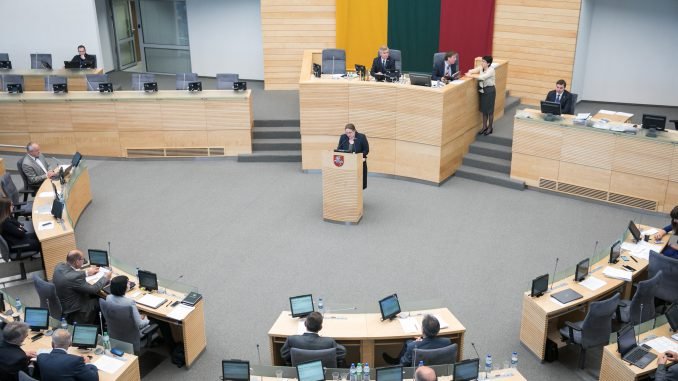
Conservative MP Gabrielius Landsbergis, one of the initiators of the bill, has said that Lithuania may become the fourth country in the world after United States, Estonia and Canada to adopt the act.
Russia’s ambassador to Lithuania, Alexander Udaltsov, has told the Russian news agency Interfax that Moscow “we will have to respond to yet another unfriendly step by Lithuania and bar entry to Russia to a number of unwelcome individuals from this country” if the Seimas passes the legislation.
Under the draft amendments to the Law on the Legal Status of Aliens, a foreigner would be banned from coming to Lithuania for up to five years if there are serious grounds to believe that he or she has committed a serious or very serious crime against a person in a foreign country and human rights and freedoms have been violated as a result of this, has committed a corruption offense or has been involved money laundering, or is on the national list of foreigners denied entry to a EU, EFTA and NATO member state.
A decision on banning entry to such a foreigner would be made by the interior minister at the foreign minister’s proposal.
The law would also allow not informing a foreigner about the decision to blacklist him or her if that would undermine the interests of state security, defense and public security and of prevention, investigation, detection and prosecution of criminal offences.
The United States in 2012 passed the so-called Magnitsky Act that imposed sanctions on a list of Russian officials believed to be responsible for human rights violations, banning visas for them and freezing their assets. Currently, there are over 40 names on the list.
The US legislation is named after Sergey Magnitsky, a Russian lawyer who was arrested under falsified charges and died in a prison in 2009 after exposing a corruption scheme.

Be the first to comment